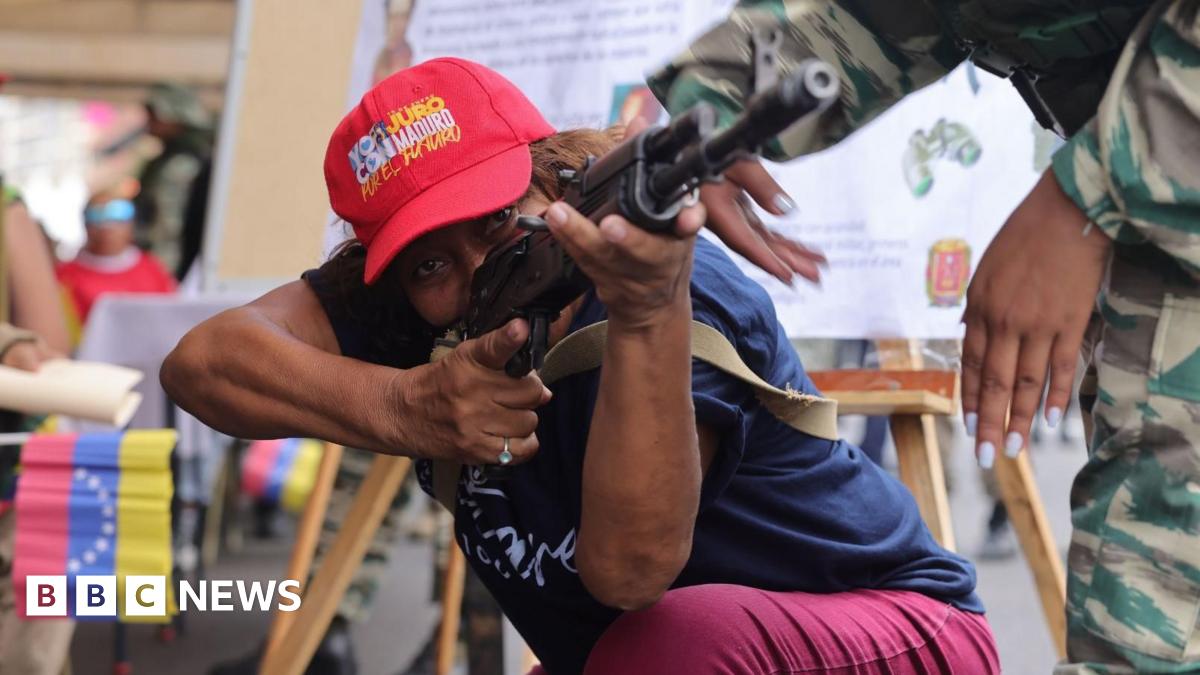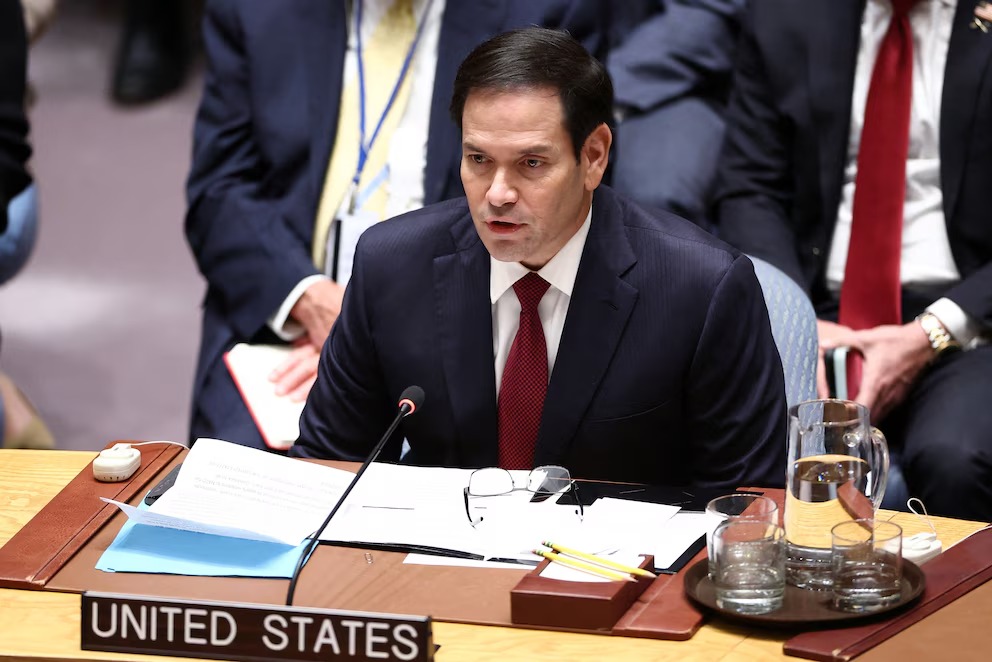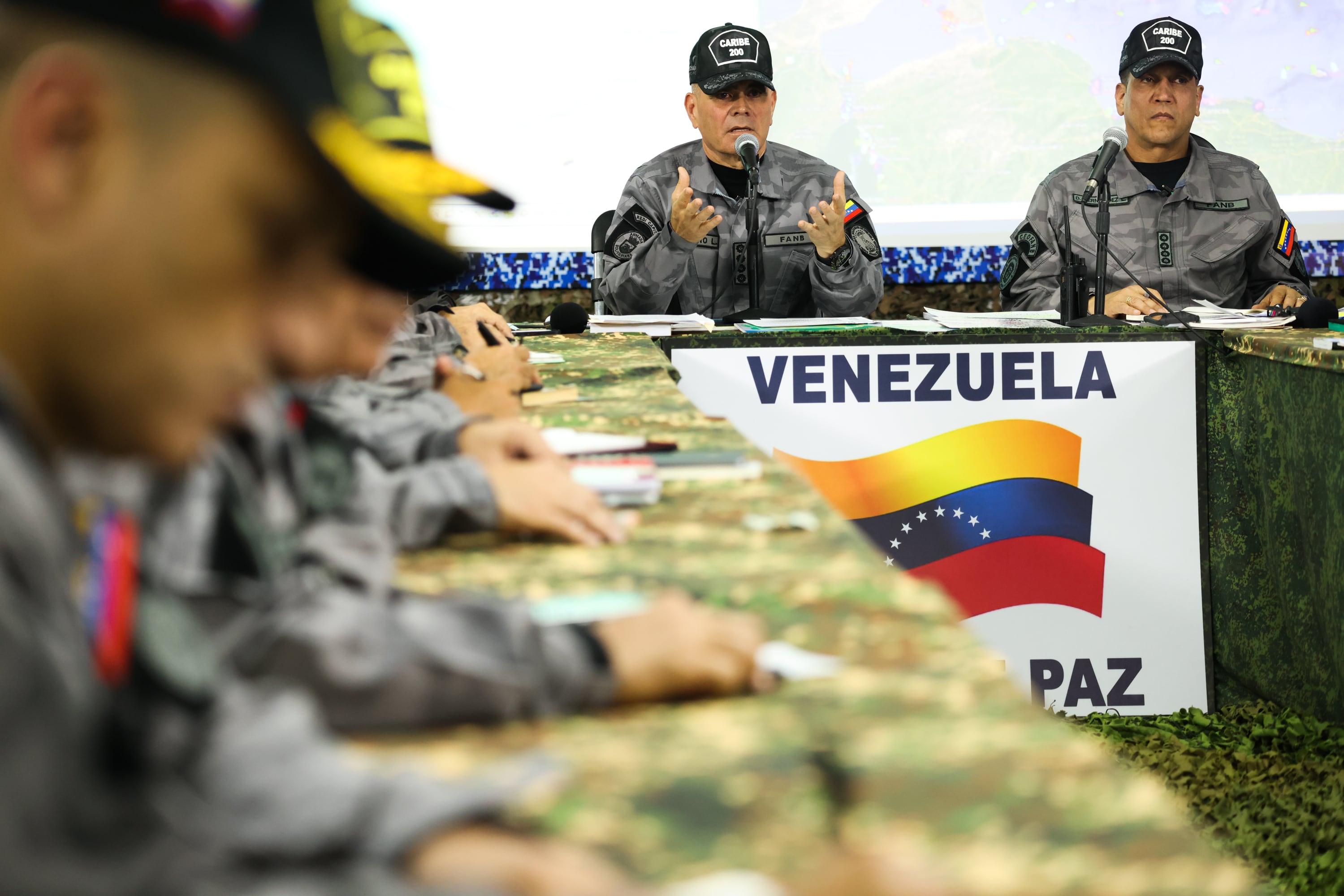Venezuela's Civilian Militia Trains Amid Rising Tensions with the U.S.
As tensions escalate between Venezuela and the United States, Venezuelan civilians are undergoing military training, fueling concerns over a potential conflict. The training exercises, ordered by President Nicolás Maduro, involve weapon handling and basic military skills, allegedly in response to a perceived threat from the U.S.
Background: U.S. Military Deployment and Venezuelan Response
The heightened tensions stem from the U.S. deployment of naval forces to the Caribbean, described by Washington as an anti-drug and counter-terrorism operation. This deployment, including warships, fighter jets, and a nuclear-powered submarine, has been met with strong condemnation from Venezuela, with Maduro accusing the U.S. of seeking regime change and violating its sovereignty. Venezuela's Defense Minister, Vladimir Padrino López, has described the situation as an "undeclared war."
Civilian Militia Training and Participation
In response to the perceived threat, Maduro has ordered the training of civilian militias. These militias, composed of volunteers from poor communities and public sector workers, are receiving instruction in weapon handling, first aid, and ideological education. A video circulating online shows civilians practicing with AK-103 rifles alongside members of the Venezuelan Army. Reports indicate participation in these drills involves troops, civilians, and government officials. Observers have witnessed exercises in cities like Caracas, San Cristóbal, and Barinas.
"We have to defend the fatherland," - Edith Perales, a member of the National Bolivarian Militia.
Contrasting Views on the Militia's Role and Capabilities
While the Venezuelan government portrays the militia as a crucial component of national defense, some analysts view it differently. Benigno Alarcón, a political analyst at the Andrés Bello Catholic University, suggests that the militia's primary function is to act as a "human shield," raising the potential human cost of any U.S. military intervention. Concerns have also been raised about the militia's level of training and combat readiness, with some members having little to no prior experience with firearms. Francisco Ojeda, a 69-year-old participant in the training, stated, "If I have to lay down my life in battle, I'll do it."
Escalating Tensions and Diplomatic Efforts
Despite the heightened tensions, Maduro has attempted to engage in dialogue with the U.S., sending a letter to then President Donald Trump calling for a meeting. However, this overture was rebuffed by the White House. The situation is further complicated by ongoing deportations of Venezuelan migrants from the U.S., and allegations of drug trafficking leveled against Maduro's government. Marco Rubio indicated that military action against drug cartels would continue. Roger Wicker has called for an investigation into the legality of U.S. actions affecting Venezuelan vessels.
| Issue | Details |
|---|---|
| U.S. Military Deployment | Naval forces in the Caribbean, described as anti-drug and counter-terrorism operation. |
| Venezuelan Response | Civilian militia training and increased military exercises. |
| Diplomatic Efforts | Maduro's attempt at dialogue with the U.S. rejected. |
| Tensions | Heightened by deportations, drug trafficking allegations, and military actions. |
Looking Ahead: Uncertainty and Regional Instability
The ongoing tensions between the U.S. and Venezuela raise concerns about potential regional instability. While the U.S. maintains that its actions are aimed at combating drug trafficking, Venezuela views them as a direct threat to its sovereignty. The civilian militia training, while intended to bolster national defense, also reflects the deep-seated distrust and animosity between the two nations. As both sides remain entrenched in their positions, the possibility of further escalation remains a significant concern. President Trump, on Truth Social, warned of a "very serious threat" after claiming US forces caught the Venezuelan Militia in training.
 Visit the website
Visit the website





